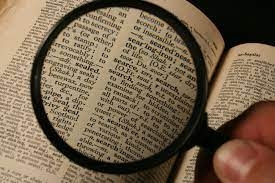What is the career in the field of lexicography?

If you are a stickler for grammar and love looking up words in the dictionary, the field of lexicography could be your calling. Language is constantly evolving. Thousands of new words and usages are added to the dictionary every year. During the ongoing COVID-19 pandemic alone, the Oxford English Dictionary had to update itself five times to accommodate new words and terms that became associated with our new normal.
And it is the lexicographers who find new words and do their best to represent them in the dictionary. So, if you have an unquenchable thirst for words and like to study their etymology, read on to find what the field holds…
How it works
Putting together a dictionary is a collaborative work. The primary job of a lexicographer is to research new words and define them. After drafting the definition, the cross-reference editor checks the work to ensures that all other relevant entries are addressed. The pronunciation editor represents the word phonetically, while the etymologist traces it historical origins. The entry is then copy-edited and proof-read before being added to the hallowed pages of the dictionary.
What are the job prospects?
Lexicographers usually work with publishing houses. They can start their career as assistant editor or junior of editorial assistant, and after gaining publishing experience they can progress to the role of editor or lexicographer. Some publishing houses offer on-the-job training to beginners in the field for making online dictionaries and e-books. With this, one can acquire knowledge about various specialist software packages and databases used in lexicography. Lexicographers work on different types of dictionaries, including bilingual/ translation, multilingual, educational, historical, biographical, geographical, special dictionaries, etc. The roles and responsibilities of lexicographers vary with the type of dictionaries they work for.
What to study
Working as a lexicographer doesn’t require any specific degree, the field is open to people from varied educational backgrounds, as long as they have good writing skills. For instance, people with a science background can work as science editors; law experts can help with legal terminology, and so on. However, there are not many universities in India and abroad that offer dedicated courses in Lexicography. The subject is often taught as part of Linguistics
Where:
- Delhi University and Deccan College, Pune: Master of Arts (M.A.) in Linguistics
Abroad:
- Universite de Lorraine, France: Master in Lexicography
- University of Oxford, the U.K.: Master of Philosophy (M. Phil.) in Linguistics, Philology and Phonetics
- University of Cambridge, the U.K.: M. Phil. In Theoretical and Applied Linguistics
- University of Wolverhampton, the U.K.: Master’s in Practical Corpus Linguistics for ELT, Lexicography, and Translation
- Birmingham University, the U.K.: M.A. Applied Linguistics
- Friedrich-Alexander University, Nuremberg, Germany: M.A. Lexicography
Did you know?
- At the strat of his career J.R.R. Tolkien worked as a lexicographer with the Oxford English Dictionary in 1919, Tolkein worked on words beginning with the letter W, including the waggle, walnut, walrus, and wampum. Because of his love and knowledge of ancient languages, Tolkein was assigned words with especially difficult etymologies.
- Years later after he wrote his seminal “The Lord of the Rings” series, Tolkein contributed the word ‘hobbit’ to the dictionary. In fact, the lexicographer working on the entry consulted with Tolkein over its definition and Tolkein wrote it down for him.
Picture Credit : Google